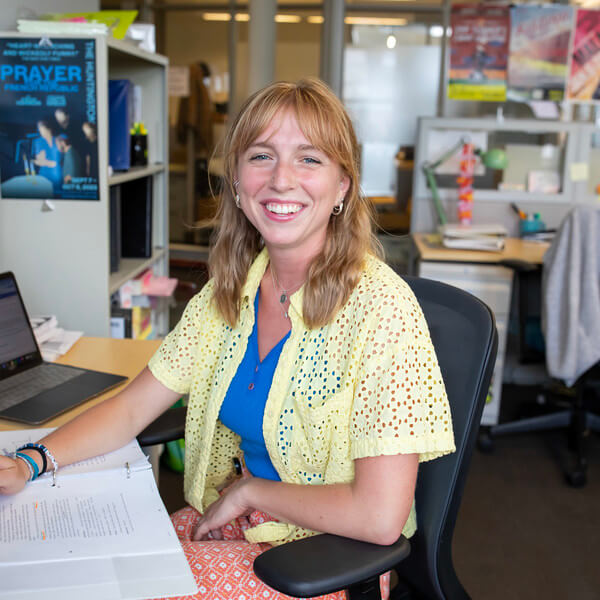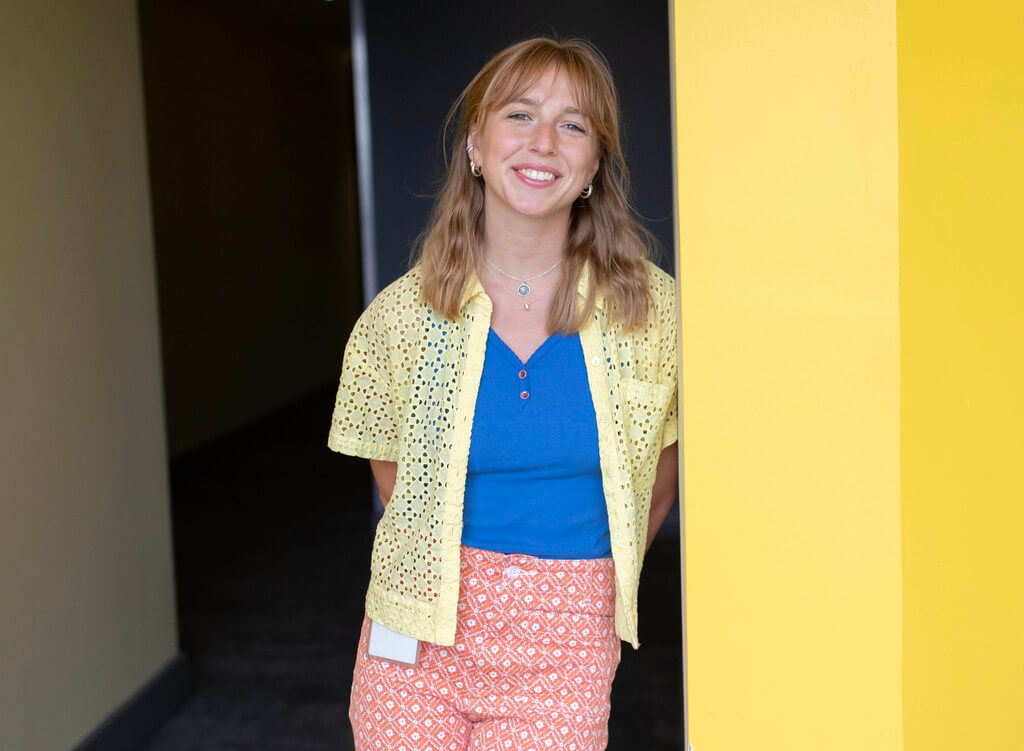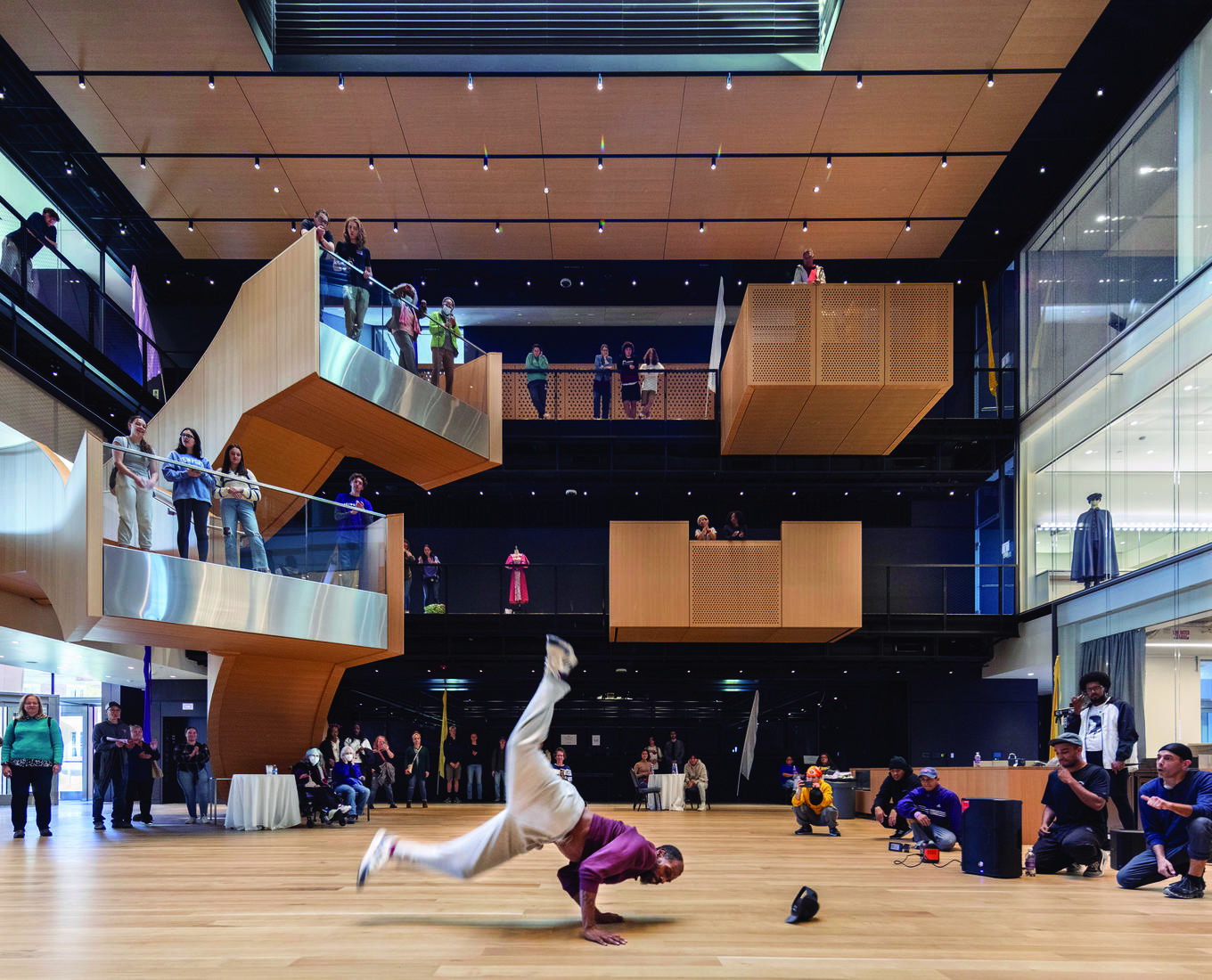Like many rising seniors, Kate Wheeler ’25 was excited to apply her liberal arts education to a summer internship — even if she couldn’t yet see how her majors might intersect in a professional setting.
“I’m an economics and theatre double major,” she said. “I love theater, but couldn't really picture myself going the starving artist route, so I just assumed I would have to do something more traditional, maybe accounting.”
A funded internship, however, revealed another option — one that combined Wheeler’s academic interests.
New this year, a fully funded summer internship program made possible by the Nancy Savage Skinner ’79 Fund for Experiential and Integrative Learning in the Creative, Performing, and Liberal Arts exposes students to the world of arts administration. The summer 2024 pilot program partnered Worcester and Boston arts organizations and offered four students — Savage Skinner Fellows — the chance to intern for their marketing, literary and operations departments.
The program helped Wheeler see a professional path forward: “I never considered really being able to do something both arts and administrative related.”
Savage Skinner Fellows receive a stipend award of $3,500 (plus potential housing costs). The funding subsidizes labor costs for the four chosen organizations (the Worcester Cultural Coalition (WCC)/city of Worcester Cultural Division and Holy Cross' Prior Performing Arts Center and Boston Lyric Opera and Huntington Theatre Company in Boston), allowing them to take on an additional paid team member and build a partnership with Holy Cross.
The chance to work with professional Massachusetts cultural organizations is “such an exciting opportunity,” said Kyle Frisina, The Prior’s interim director and coordinator for the four fellows.
"Discovering arts administration as a rising college senior changed my life,” she said. “That summer, I interned in the literary office of New York’s Second Stage Theater; years later, I returned to the company as its director of play development. Many Holy Cross students love the arts but may not know they can marry their passion with careers in marketing, development, finance or artistic planning. This program allows them to gain experience and make connections that will open doors down the line."
To Wheeler’s supervisor at the WCC, Wheeler’s work has been a gift.
“As a small team, we require support from interns to offer a dynamic summer portfolio of events, programs and public art,” said Yaffa Fain, assistant cultural development officer for the city of Worcester. Wheeler, she praised, was “vital in hitting the ground running and doing all sorts of creative work and different research projects. Over the course of her summer fellowship, each day has looked different.”


